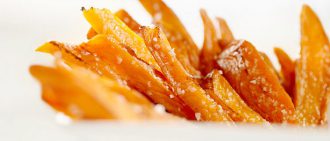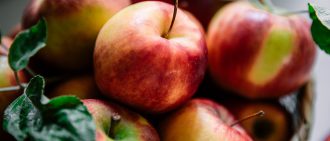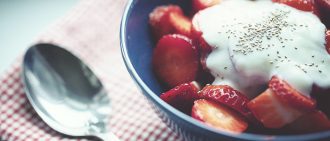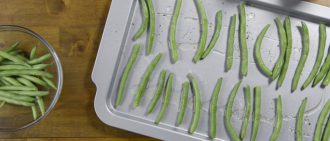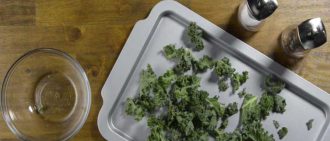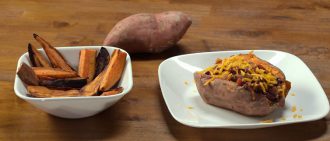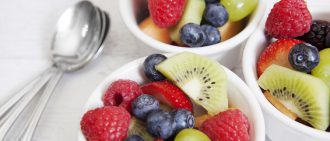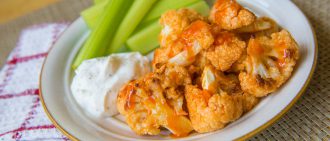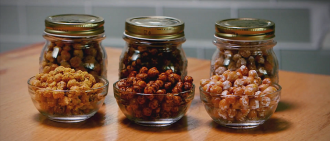The college years are a critical time for learning. Research has consistently found that eating a nutritious, varied diet can improve concentration, enhance memory, prolong attention span, and improve thinking. Students who regularly eat nutrient-rich foods also display more efficient problem-solving skills, greater fact comprehension, and stronger mental recall.
Nutritious snacks are an important component of a balanced diet. That is especially true during the long hours spent studying. Snacks help as a bridge between meals and can prevent excessive hunger while helping with portion control and mindful food choices.
Smart snacking also promotes energy levels, stimulates metabolism, and stabilizes blood glucose. Blood glucose instability can cause feelings of low energy, irritability, restlessness, anxiety, and drowsiness, none of which aid productive studying.
Healthy Snacks
What types of snacks give you energy?
Ideal study snacks are made of one serving of high-quality carbohydrates along with a source of lean protein. Adequate carbohydrate intake is important for health. Glucose, the product of carbohydrates, is the main energy source for the body and the only usable fuel for the brain. High-quality carbohydrates supply a steady, sustained release of energy. Examples of high-quality carbohydrates are:
- Whole grains
- Fruits
- Vegetables
- Legumes
These foods also deliver B vitamins. You need these for the digestion and use of the energy that comes from carbohydrates. High-quality carbs are rich in fiber, zinc, iron, magnesium, and selenium.
Nutrition for Young Adults
What types of snacks keep you full?
Protein helps reduce hunger, control appetite, and manage food intake. It also maintains blood sugar levels, preserves lean muscle mass, repairs body tissues, and creates enzymes and hormones. Some high-protein foods include:
- Cheese
- Cottage cheese
- Eggs,
- Nuts, seeds
- Nut/seed butter
- Meat, poultry, and fish
Never Miss a Beat!
Subscribe to Our HealthBeat Newsletter!
Thank you for subscribing!
You can now select the specific newsletters you'd like to receive.
You are already subscribed.
Subscribe to more newsletters in our email preference center.
Sorry, an error occurred. Please try again later.
Get Healthy Tips Sent to Your Phone!
What snacks are good for on-the-go?
Stocking up on ready-to-eat foods now makes it easy to refuel whenever you need a study break. Keep these in your dorm for some quick snack options.
|
CARBOHYDRATE |
PROTEIN |
|
Whole Grain Bread (Sliced, Tortillas, English Muffins, Mini Bagels, Pita Bread, Toaster Waffles) |
Skim, 1%, or Soy Milk |
|
Part-Skim/Reduced-Fat Cheese (Stick, Sliced, Shredded, Cubed) |
|
|
Whole Grain Crackers |
Low-Fat/Nonfat Yogurt |
|
Whole Grain Cereal (Hot or Cold) |
Nut/Seed Butter (Peanut, Almond, Cashew, Sunflower) |
|
Fruit (Fresh, Frozen, Canned, Dried) |
Eggs |
|
Nuts |
|
|
Rice Cakes |
Seeds |
|
Low-Fat Popcorn |
Low-Fat/Nonfat Cottage Cheese |
|
Whole Grain Pretzels |
Lean Lunch Meat |
|
Raw Vegetables |
Tuna |
|
Whole Grain Granola Bar |
Turkey Jerky |
|
Whole Grain Chips (Baked or Popped Varieties) |
Dry-Roasted Beans |
|
Hummus |
20 Quick Snacking Options
- Dip whole grain crackers, whole grain tortilla chips, or whole-wheat pita triangles in hummus.
- Create a homemade trail mix made with whole-grain cereal, dried fruit, and unsalted nuts or seeds.
- Spread nut/seed butter (peanut, almond, cashew, or sunflower) on celery sticks, apple wedges, or banana slices.
- Roll up a part-skim cheese stick or a few slices of lean lunchmeat in a whole grain tortilla.
- Dunk baby carrots, sliced bell peppers, broccoli and cauliflower florets, cucumber slices, celery sticks, or cherry tomatoes into hummus.
- Mix whole-grain cereal or fresh/frozen fruit into nonfat Greek yogurt.
- Spoon slivered almonds over a bowl of fresh berries.
- Snack on whole-wheat pretzels with a part-skim cheese stick or reduced-fat cheese slices.
- Stir sliced pineapple, pears, peaches, bananas, oranges, or strawberries into nonfat/low-fat cottage cheese.
- Eat grapes, melon cubes, apple wedges, mango chunks, or baby carrots with reduced-fat cheese cubes or a part-skim cheese stick.
- Make whole-grain cracker sandwiches with nut/seed butter (peanut, almond, cashew, or sunflower) butter or reduced-fat cheese.
- Pair unsweetened applesauce with pecan or walnut halves.
- Pack cherry tomatoes alongside a hard-boiled egg.
- Sprinkle shredded reduced-fat cheese onto a whole grain tortilla and microwave for a fast quesadilla.
- Fill a cored apple or half a cantaloupe with low-fat/nonfat cottage cheese.
- Smear hummus onto a whole-wheat pita with tomatoes and cucumbers.
- Top a whole-grain toaster waffle with nonfat/low-fat yogurt.
- Create a mini pizza with a toasted whole-grain English muffin, tomato sauce, and part-skim mozzarella cheese.
- Dab almond butter onto a whole grain mini bagel.
- Make a peanut butter and jelly sandwich with 2 slices of whole-grain bread, 2 tablespoons of peanut butter, and 1 tablespoon of strawberry jelly.
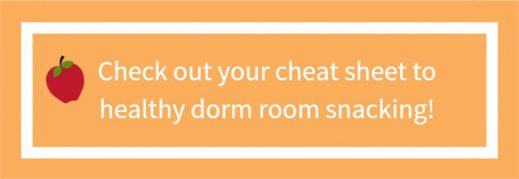
Vitamins and Nutrients 101
Certain nutrients may help fight fatigue and boost energy. Drinking water also helps physical and mental stamina; foods with high water content will help you stay hydrated. Get creative and fit these nutrient-packed food sources into your studying routine:
- Magnesium: Pumpkin seeds, green beans, molasses, halibut, green leafy vegetables (spinach, Swiss chard, turnip greens, collard greens, mustard greens)
- Omega-3 Fatty Acids: Salmon, tuna, trout, mackerel, halibut, sardines, herring, chia seeds, hemp seeds, ground flaxseed, walnuts
- Vitamin B12: Fish/shellfish (salmon, trout, tuna), lean beef and pork, poultry, eggs, nonfat/low-fat dairy products
- Polyphenols: Strawberries, blueberries, raspberries, dark chocolate, grapes
- Antioxidants: Tree nuts, blueberries, cherries, pomegranates
- At Least 93% Water: Watermelon, cantaloupe, honeydew melon, oranges, apricots, peaches, plums, raspberries, pineapple, tomatoes, cucumbers, celery, lettuce, zucchini
Healthy snacking can help fuel your brain and prepare you for the challenges of school.
Featuring Tamara Rhodes, MS, RD, LDN
About UPMC Harrisburg
UPMC Harrisburg is a nationally recognized leader in providing high-quality, patient-centered health care services in south central PA. and surrounding rural communities. UPMC Harrisburg includes seven acute care hospitals and over 160 outpatient clinics and ancillary facilities serving Dauphin, Cumberland, Perry, York, Lancaster, Lebanon, Juniata, Franklin, Adams, and parts of Snyder counties. These locations care for more than 1.2 million area residents yearly, providing life-saving emergency care, essential primary care, and leading-edge diagnostic services. Its cardiovascular program is nationally recognized for its innovation and quality. It also leads the region with its cancer, neurology, transplant, obstetrics-gynecology, maternity care, and orthopaedic programs.

